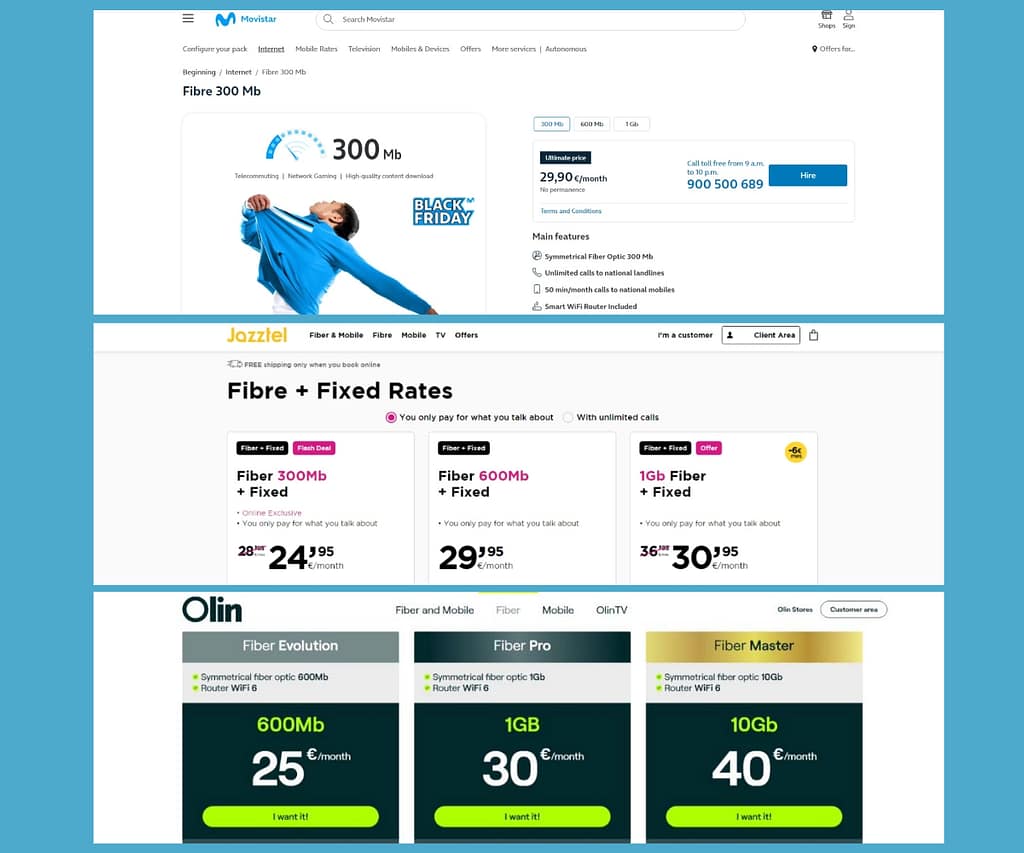How good is broadband in Spain? Find out where things stand

FAST AND COPIOUS
Having access to broadband with high internet speed is an essential requirement for modern living. So, if you’re considering a possible move to Spain, these questions will no doubt be on your agenda. Including affordability, a key part of the cost-of- living equation.
Internet in Spain: The big picture
It may come as a surprise to some people, but internet in Spain today has one of the best fiber optic connections in Europe. So says a Spanish telecom company with extensive experience in broadband connectivity.
“Spaniards should be proud that they are world leaders in the field of telecommunications, as fiber optics is one of the best high-speed Internet connection technologies available,” argues Valencia-based KeyFibre on its website.
Indeed, if one looks at the latest statistics and analysis of related developments it becomes clear that KeyFibre has a point.
For example, with around 42.5 million users in 2023, Spain is the seventh-largest internet market in Europe. Moreover, according to statista.com, the Mediterranean nation is ranked 15th worldwide among the countries with the highest internet penetration rate, and the eighth within the European continent. With its “affordable and abundant service,” says statista, Spain also has the seventh-highest internet inclusivity rate worldwide.
> And here’s another intriguing number to flag – 96.4%. This is the percentage of Spanish households covered by fixed broadband, according to the latest European Commission’s report tracking digital connectivity in EU countries. Although some coverage issues remain in rural areas, the report notes, Spain aims to extend ultrafast network coverage to the entire population and prepare 100% of the radio spectrum for 5G by 2025.
Much of Spain’s success in this sphere can be also attributed to the use of progressive broadband technologies. For instance, according to the European Commission’s report FTTP became the most prevalent technology in Spain, replacing DSL.
Almost 9 out of 10 (88.9%) Spanish households were covered by FTTP networks by mid-2021, which was the fourth highest level among the countries reviewed by the 2022 study. For its part, KeyFibre stresses Spain’s pioneering efforts in fiber optics because of the focus on installing the FTTH fiber, which goes directly to the homes of the people who contract the service.
The providers: intense competition
Spain boasts a competitive market for broadband providers, offering a wide range of options for consumers. Overall, there are more than 30 internet providers in the country, but only six have their own fiber and ADSL infrastructure throughout the national territory. Those big players are Movistar, Vodafone, Orange, and MásMóvil. Then there is YoiGo, which was recently acquired by MásMóvil, and Jazztel, now owned by Orange, the Spanish branch of the French company.
The big providers tend to be more expensive, partly based on the premise that they are offering higher-quality services. You wouldn’t know that, judging by some of the reviews, but despite predictable grumbling overall service standards are pretty good.
As the former state provider, Movistar still dominates the home internet market in Spain, accounting for almost 40% of all connections in the country. Movistar, a subsidiary of Telefónica, offers various packages with different speeds to cater to the diverse needs of customers. Its fiber plans have a reputation for reliability and fast speeds, making them a popular choice among users.
While there may be price and availability variations based on the region or season, the rule of thumb is that you shouldn’t have a problem getting fiber internet with a 300 Mbps speed for 30€ or less.
Moreover, since many providers offer package deals that include a cell service, you can often get 300 Mbps of broadband — PLUS a mobile line with unlimited calls and 10 GB of data! — for the same price. If necessary, you can also find a company that will not charge you for the time you are not using the service if you need to be away for an extended period.
In Spain’s liberalized broadband market, there’s now a growing number of new companies that offer discount rates and enticing packages. They include Lowi (a subsidiary of Vodafone), O2 (owned by Telefónica), Pepephone and Digi, which has been making big strides in the Costa del Sol lately. Digi promotes itself as “the fastest fiber network in Spain” for the past two years based on the Ookla® Speedtest Awards. Like other providers, it offers attractive deals combining fiber and WiFi with their mobile products. In one example. you can get a 1 GB fiber line with 50 GB of storage, plus a 20 GB unlimited calls mobile line – all for just 36€ a month.
